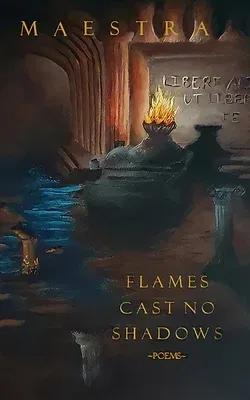Maestra's first collection of poetry combines artistic ballads,
dramatic lyrical works and original philosophical concepts to explore a
variety of contemporary topics with a pensive and metaphorical approach.
There are several encryptions throughout this volume and its cover,
including the author's real name in the last poem 'Untitled'.
The theory of binary existance, as mentioned in the preface, suggests
that we exist as two entities: the public and the private. The more
prominent our public self is, the less prominent the private becomes and
vice versa. This is due to a balanced equilibrium of collective emotion
shared by the population, which also allows any entity to possess two
opposite states (good and bad, according to intuition), with an equal
chance of switching to the other state at any given time.
Inspired by the myth of Prometheus, the cover depicts the granted flame
within each one of us signifying our capacity for reason and
imagination - all that is independent of our mortal form and is handed
to history after our physical death. Illuminating the sign translated as
'free another to free yourself', the flame on the central altar has no
shadow of its own, but casts one on the broken and charred pillars
(physical forms) that have preceded it in their quest to free themselves
and others through their art and have achieved immortality after their
flames have burned out. To history, they remain human - hence the
physical form remains, and the gift (the flame) has left a char and is
placed in abstraction.


